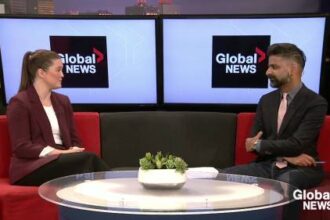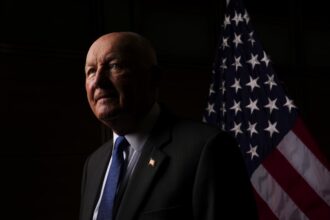In an era where falsehoods travel at lightning speed across social media platforms, Canada has unveiled a powerful new weapon in the battle against digital deception. The Civic Searchlight tool, launched nationwide this week, represents a significant advancement in how Canadians can identify, track, and counteract harmful disinformation campaigns targeting our democratic processes.
“What makes Civic Searchlight unique is its ability to analyze patterns across multiple platforms simultaneously,” explains Dr. Samantha Chen, lead developer at the Digital Democracy Institute, which spearheaded the project. “We’re not just flagging individual false claims—we’re mapping out coordinated attempts to manipulate public opinion.”
The timing couldn’t be more critical. According to recent CO24 News investigations, foreign interference in Canadian political discourse has increased by nearly 40% since 2022, with sophisticated actors deploying increasingly convincing deepfakes and AI-generated content designed to sow division among voters.
The tool emerged from a two-year collaboration between computer scientists, journalists, and national security experts who recognized the inadequacy of existing fact-checking methods against the evolving threat landscape. Unlike previous approaches that relied heavily on human verification, Civic Searchlight employs advanced machine learning algorithms to detect manipulation tactics in real-time.
“We’ve moved beyond the whack-a-mole approach,” notes Minister of Democratic Institutions Teresa Wong. “This tool gives ordinary Canadians the ability to see not just what disinformation is circulating, but why it’s being pushed and who stands to benefit.”
Early testing in three provincial elections demonstrated the tool’s effectiveness, with users reporting a 62% improvement in their ability to identify questionable content. The platform’s transparency features allow users to trace how specific narratives evolve and spread across the digital ecosystem, providing crucial context often missing from traditional fact-checking resources.
While privacy advocates have expressed concerns about potential overreach, the development team emphasizes that Civic Searchlight analyzes only publicly available information and does not track individual users. “This isn’t about policing thought,” clarifies Chen. “It’s about empowering citizens with the information they need to make informed decisions about the content they consume.”
The initiative represents part of Canada’s broader political strategy to safeguard electoral integrity ahead of next year’s federal election, where digital manipulation attempts are expected to reach unprecedented levels according to intelligence assessments recently covered in our Canada News section.
Education officials have already begun incorporating the tool into media literacy programs across secondary schools and universities, with plans to expand training to senior citizens’ centers—demographics particularly vulnerable to sophisticated misinformation campaigns.
“This isn’t just about technology,” says Alisha Patel, director of the Canadian Centre for Media Literacy. “It’s about building societal resilience. The most sophisticated algorithm in the world can’t replace critical thinking skills.”
As other democracies grapple with similar challenges, Canada’s approach is drawing international attention. Representatives from twelve countries, including Australia and Germany, have already requested briefings on implementing similar systems within their own world information ecosystems.
The $24 million investment in the project, funded through a public-private partnership model, reflects growing recognition that disinformation represents not just a political threat but potentially a business risk as markets increasingly react to manufactured narratives.
As we enter an age where distinguishing fact from fiction becomes increasingly challenging, the fundamental question remains: will technological solutions like Civic Searchlight be enough to preserve the integrity of our public discourse, or have we reached a point where truth itself has become merely another battleground in our increasingly polarized society?







